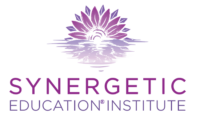Intermediate Level Trainings:
Part 1: Creating Effective Regulatory Spaces – 6 hours of content
Offering effective support to individuals and groups of students in and out of the classroom requires intentional planning and data collection to track progress. Educators will learn to create layered, social-emotional behavior support plans that include components to support students at varying levels of arousal states. These plans will be built upon two vital understandings: 1) the need to use a regulatory perspective so we are using the right strategy at the right time, and 2) the need to scaffold social-emotional and behavior lagging skills in the same way we would with academic interventions. Educators will explore the different and complementary roles that staff play, including the necessary training and communication systems that must be in place for integrated support.
Learning Objectives:
- Participants will learn how to use a regulatory perspective when creating support plans for students.
- Participants will analyze and compare their beliefs around scaffolding academic versus social-emotional, and behavioral support.
- Participants will explore ways to collect meaningful data to track progress as a way to guide interventions.
- Participants will examine the need for staff to play different and complementary roles.
- Participants will identify the professional development that is needed for successful implementation of regulatory spaces and collaborative support.
Part 2: School-wide Systemic Implementation – 6 hours of content
For sustainable change it’s necessary to integrate systems and initiatives. To avoid always feeling like we’re swimming upstream, it’s important to develop protocols that work with current structures while making steps towards change. Examining simple, practical ways to address challenges in the moment is imperative, if we want to avoid on-going feelings of overwhelm and burn out. Participants will explore the possibilities of adopting a teaming approach and evaluate ways to develop successful communication and collaboration. Through a multi-tiered lens, educators will deepen their work with layered social-emotional behavior plans, focusing on implementation responsibilities. The components of sustainable change will be examined as each person identifies challenges and possibilities in their learning environment.
Learning Objectives:
- Participants will identify ways to work with others in their building(s) for collaboration and support.
- Participants will analyze their role in implementing layered social-emotional behavior plans and identify where and how they may obtain additional support if needed.
- Participants will identify strategies to help them manage daily challenges and avoid burnout.
- Participants will examine the components of sustainable change and develop their own plans for moving forward.

